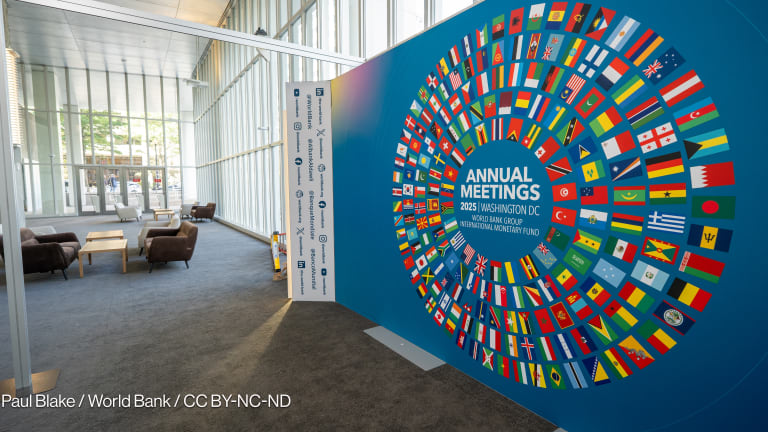The next two years may see Islamic banks and financial institutions investing more of their estimated $1.7 trillion worth of assets in infrastructure as well as small and midsize enterprises.
Officials from the Islamic Development Bank, World Bank and Moody’s, among others, discussed development opportunities for Islamic finance Thursday during a panel discussion at the World Bank’s annual meetings in Washington, D.C.
“One of the tenets of Islamic finance requires tangible assets, and infrastructure projects for governments provide those assets,” said Aamir Rehman, managing director of Fajr Capital, referring to standards of practice among Islamic finance institutions that adhere to Islamic principles, such as interest-free loans and investments.








